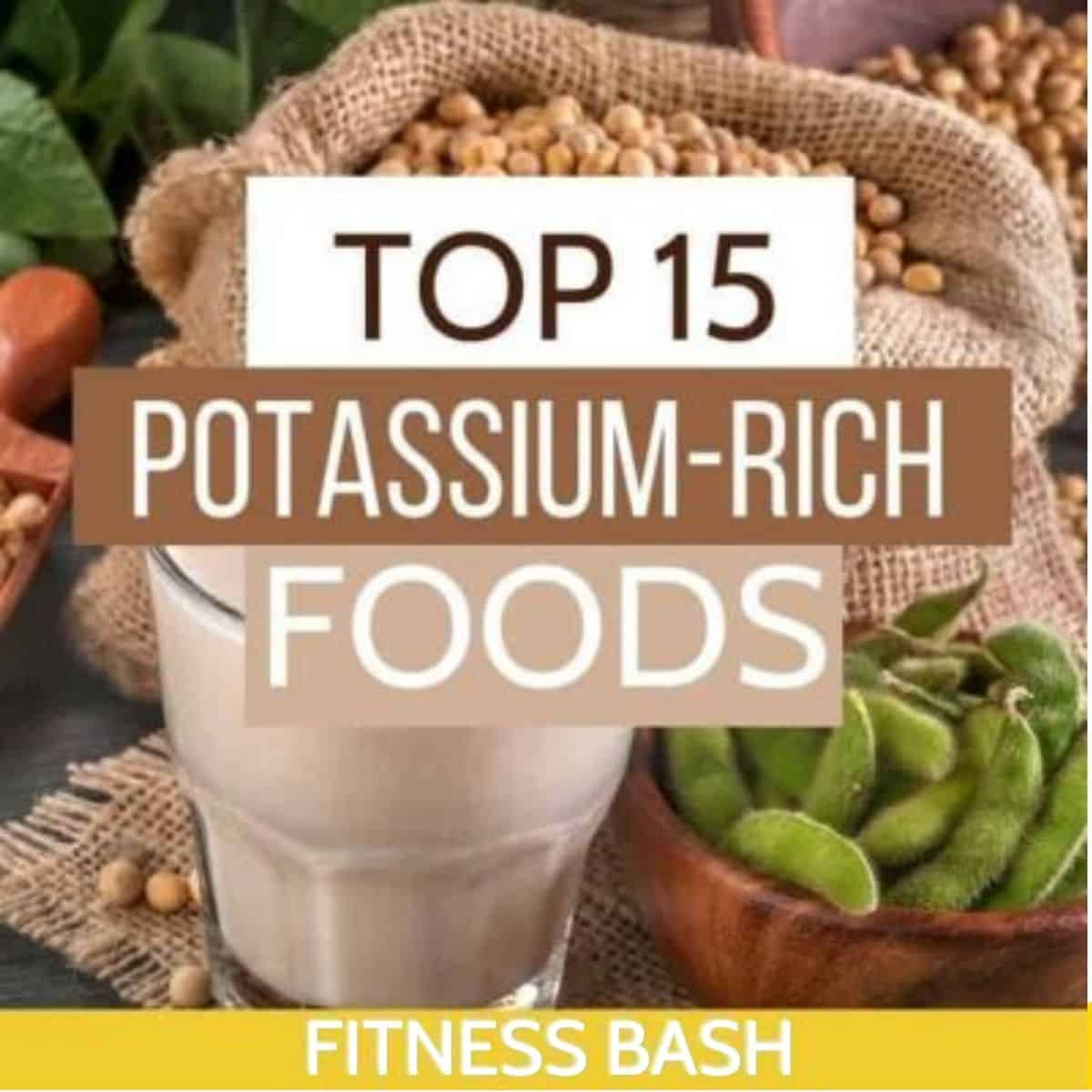POTASSIUM-RICH FOODS
Do you often feel run down and tired? If so, you may be lacking potassium.
Potassium is a mineral that is essential for good health.
It helps to regulate blood pressure and energy levels, and it also plays a role in heart health.
The best way to prevent arrhythmias and strengthen heart cells is by eating a diet rich in potassium. Foods like bananas, avocados, and kale are all high on this scale!
These high-potassium foods will keep your muscles healthy by preventing cramps or tension headaches!
Thankfully, there are plenty of potassium-rich foods that you can eat to boost your intake of this important mineral.
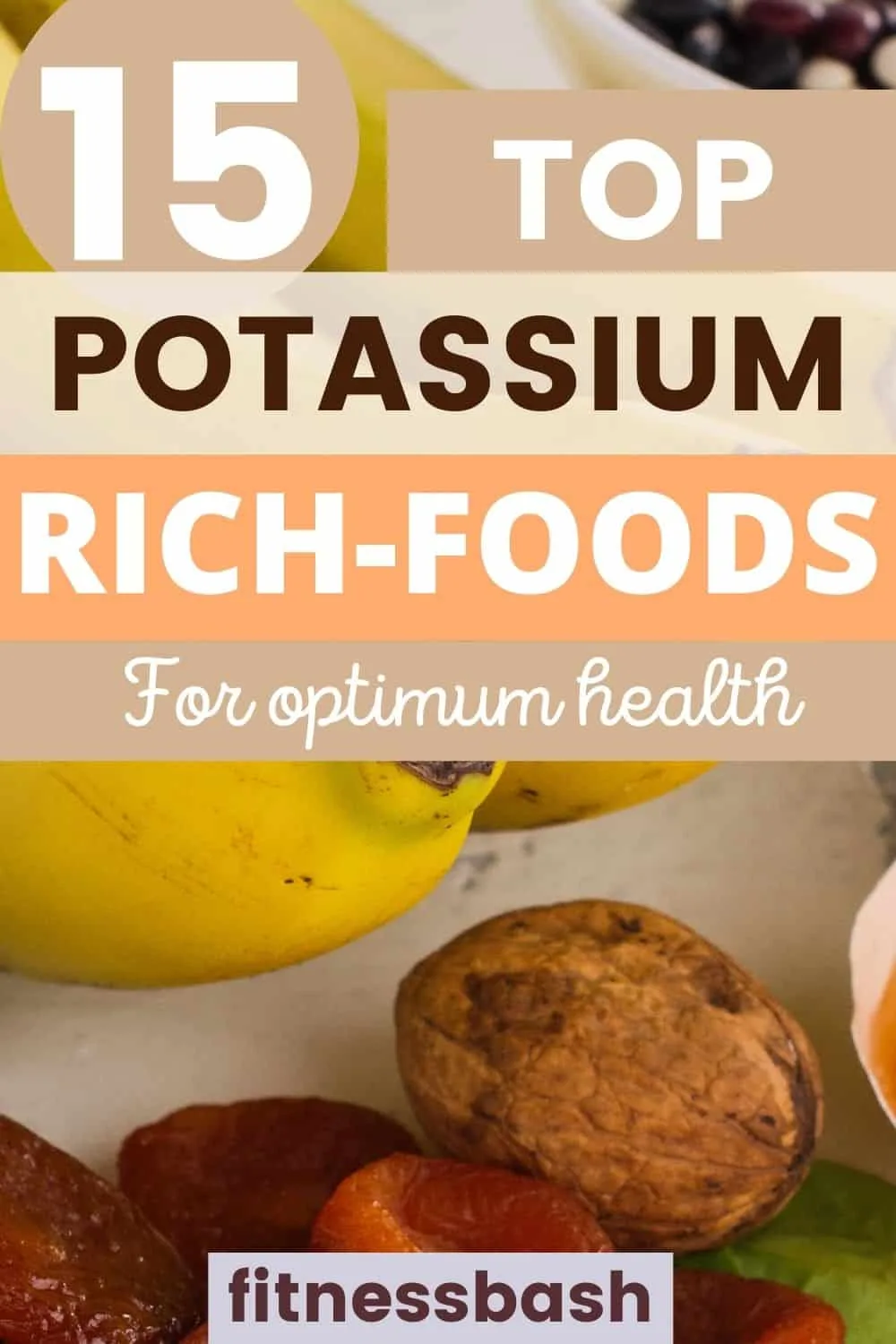
When it comes to health, a good diet is key.
One of the best ways you can eat more potassium-rich foods and less salt or sodium intake will be by adding some fresh vegetables like celery root into your weekly meal plan!
What are the signs of potassium deficiency?
Potassium is an important mineral that our bodies need in order to function properly.
A potassium deficiency can cause a variety of health problems, so it’s important to be able to recognize the signs.
- Muscle cramps
- A feeling of weakness
- Low blood pressure
- Irregular heartbeat
- Constipation or diarrhea
What causes a lack of potassium in the body?
What are the symptoms of low potassium?
A lack of potassium in the body can be caused by many factors.
Some common causes include heavy drinking, vomiting, diarrhea, kidney problems, and more.
If not treated quickly enough it can lead to some serious complications like heart arrhythmias and muscle weakness which is why it’s important to check your levels regularly if you’re feeling any of these symptoms.
Which food is highest in potassium?
Soybeans and kidney beans contain a lot of potassium.
Dried fruits like prunes, raisins, or cooked leafy greens such as spinach or broccoli are rich in potassium too.
What fruit is highest in potassium?
Bananas, oranges, and apricots are definitely among the fruits containing a higher amount of potassium.
How many bananas should I eat a day for potassium?
Nothing excessive is good.
1-2 bananas a day should be good enough.
Read on to know the other food items that will give a real boost to potassium.
Which vegetables have the most potassium?
Spinach, potatoes, sweet potatoes, bok choy, and mushrooms all are good vegetable sources of potassium.
Top 15 Potassium-Rich Foods:
Starting with dry fruits as they are one of the richest sources of potassium.
1. RAISINS & PRUNES
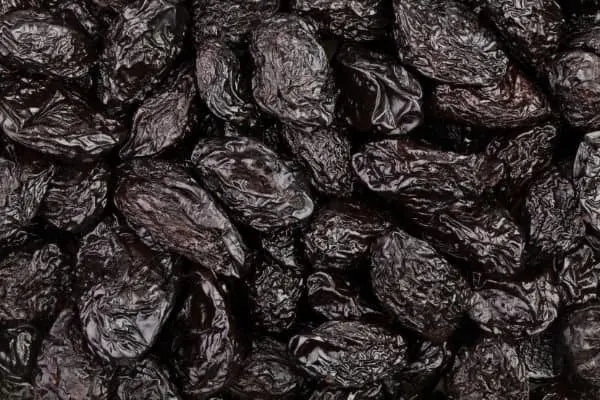
750 mg of potassium per 100 gm
For people who are looking for a good source of potassium, raisins are a great option. Raisins contain more potassium than bananas, and they also have a lot of other nutrients that can benefit your health.
In addition to being one of the potassium-rich foods, raisins are also high in fiber and antioxidants.
So if you’re looking for a healthy snack that will give you some potassium, raisins are the way to go!
Similarly, like raisins, prunes are also a great source of potassium and fiber.
Thankfully, prunes are a low-calorie and convenient way to get more potassium into your diet. So stock up on prunes and enjoy all their health benefits!
2. DATES
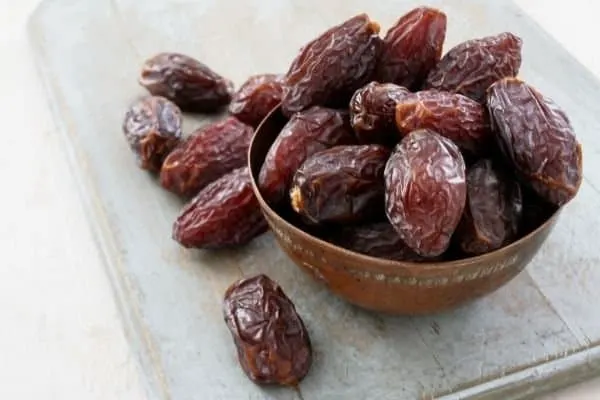
656 mg of potassium per 100 gm
When you think of potassium, what comes to mind?
Likely not dates, but this sweet and sticky fruit is a great source of the mineral.
In fact, one date has about 20 milligrams of potassium! So if you’re looking for a new way to up your potassium intake, give dates a try.
You can enjoy them as-is or use them in recipes like Date Almond Protein Balls.
Dates are also a good source of fiber and vitamin B6.
3. BANANAS
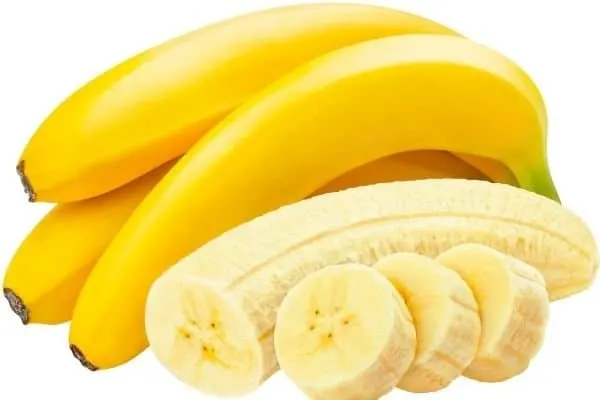
360 mg of potassium per 100 gm
The humble banana is more than just a tasty and nutritious snack.
Bananas are the most popular potassium-rich foods known.
Bananas are rich in fiber, vitamin C, and magnesium too.
Potassium helps with muscle control, the immune system, blood pressure regulation, and water balance in cells.
Fiber can help curb hunger cravings by adding bulk to your diet without too many calories.
Vitamin C is an antioxidant that may reduce wrinkles or slow down the aging of skin when taken internally or topically applied to the face every day before going out in the sun for prolonged periods of time.
Magnesium aids in bone health with calcium absorption as well as essential enzymes for energy production in cells among other things!
And you thought bananas were only good for being peeled and eaten raw!
4. APRICOTS
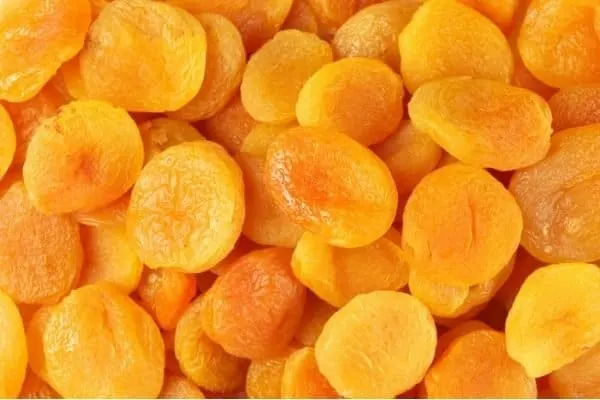
259 mg of potassium per 100 gm
I love apricots, they’re my favorite fruit. They contain a lot of potassium which is really important for the body.
I just wish they were in season all year round!
They are also a good source of fiber, and vitamins A and C. Apricots are low in calories and have a sweet taste.
They can be eaten fresh or dried. Dried apricots can be added to cereal, oatmeal, or trail mix.
Apricots are also used in preserves, jams, and desserts.
5. ORANGES
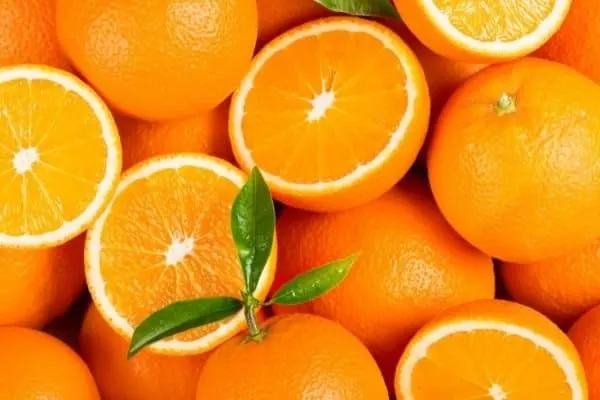
181 mg of potassium per 100 gm
Oranges are also a good source of vitamin C and potassium, which are important for keeping our immune systems strong.
So it is also a great snack if you are craving sweets.
6. GRAPEFRUIT
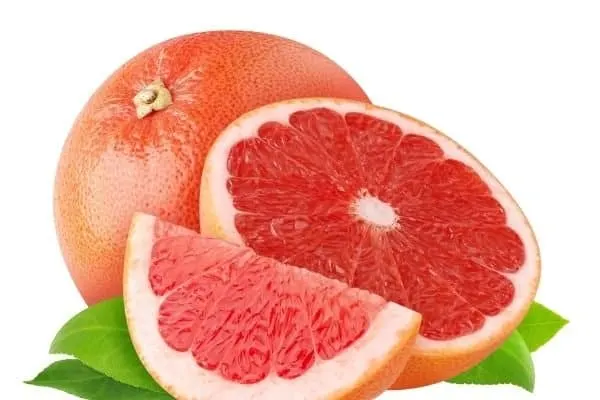
135 mg of potassium per 100 gm
If you’re looking for a great way to boost your potassium levels, grapefruit is a great source of potassium.
One medium grapefruit contains over 400 milligrams of potassium (on average), so it can help keep your body running smoothly.
Plus, they’re delicious and refreshing – perfect for a snack or breakfast on the go.
So next time you’re stocking up on fruits and vegetables, be sure to add some grapefruit to your list!
7. SPINACH
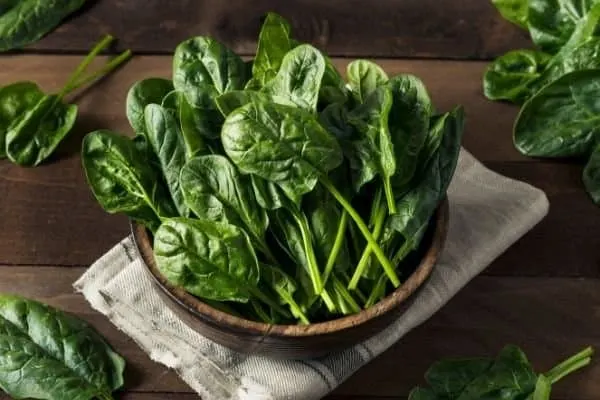
558 mg of potassium per 100 gm
One cup of raw spinach contains more than 400 milligrams of potassium!
This makes spinach a great choice if you’re looking for a way to boost your potassium intake. Plus, spinach is low in calories and high in fiber, so it’s a healthy option overall.
This leafy vegetable is a great source of antioxidants, vitamins, minerals, and fiber too.
It can help improve your heart health, reduce inflammation, and promote weight loss.
Spinach is also a good source of protein and can be enjoyed in many different dishes.
8. POTATOES
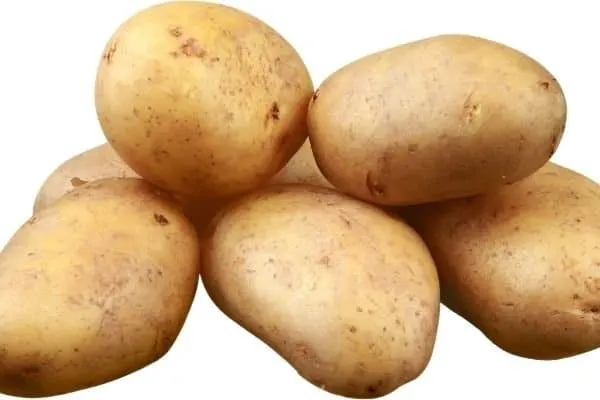
481 mg of potassium per 100 gm
Many people don’t realize this, as they often think of bananas as the best source of this essential mineral.
Potatoes actually contain more potassium than bananas! This means that including potatoes in your diet can help you to reach your recommended daily intake of potassium.
-Add boiled or mashed potatoes to your breakfast oatmeal or cereal.
-Make potato salad for a healthy and satisfying side dish.
-Or just drop a potato in any curries you make.
9. SWEET POTATO
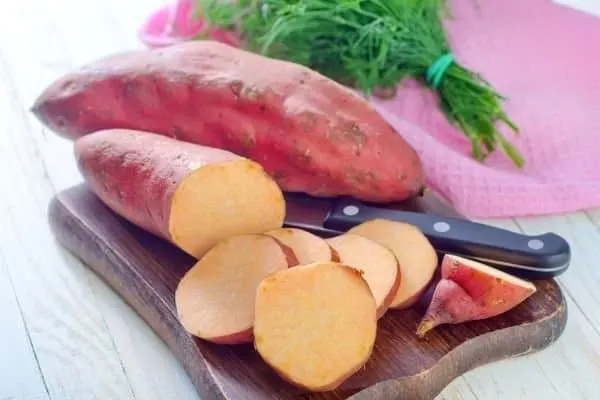
337 mg of potassium per 100 gm
Yet another rich potassium source.
I love eating mashed sweet potatoes.
Sweet potatoes are a delicious, nutritious vegetable that’s enjoyed by people all over the world. Sweet potatoes are a good source of fiber, vitamins A, C, and E, and minerals such as potassium and magnesium.
They can be eaten cooked or in sweet dishes too.
10. MUSHROOM
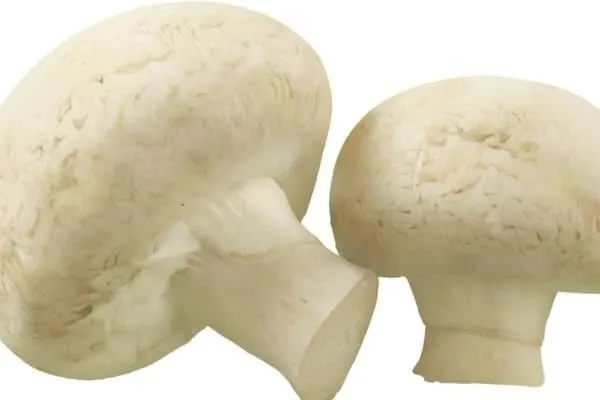
318 mg of potassium per 100 gm
Mushroom contains a lot of nutrients. One such nutrient is potassium.
Mushrooms are a fungus that can be found in many different climates and regions around the world. Though often eaten as a food, mushrooms have many health benefits that make them worth considering as a natural remedy for various conditions.
Some of the health benefits of mushrooms include their ability to improve cognitive function and boost the immune system. In addition, they are also good for maintaining heart health and reducing inflammation in the body.
11. BROCCOLI
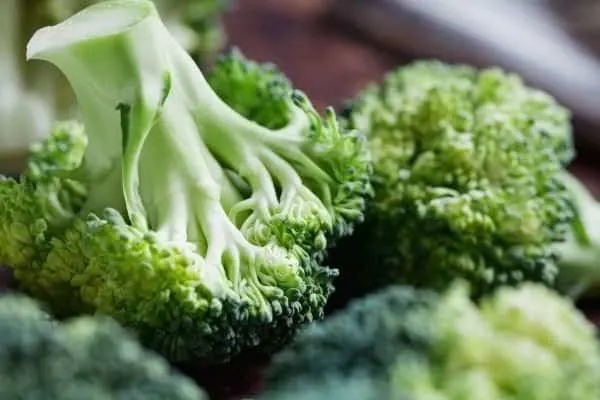
316 mg of potassium per 100 gm
Broccoli is another great source of antioxidants and vitamins; and one of the potassium-rich foods.
It’s also low in calories, making it the perfect food for people who are trying to lose weight.
This green vegetable is packed with vitamins, minerals, and antioxidants that are essential for optimal health.
12. ZUCCHINI
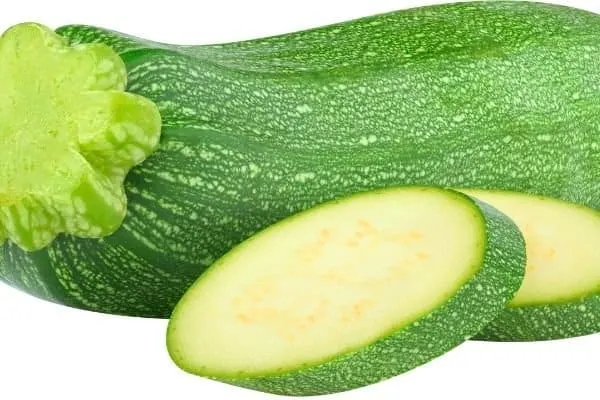
261 mg of potassium per 100 gm
Zucchini is a summer squash that has virtually no calories and is very low in fat.
It’s also high in vitamin A, vitamin C, potassium, and manganese.
No wonder zucchini is the perfect veggie to add to any diet plan!
Zucchinis are versatile too.
You can use them as an appetizer with dip, make a healthy soup or salad with them or even roast them for a satisfying side dish!
13. KIDNEY BEANS
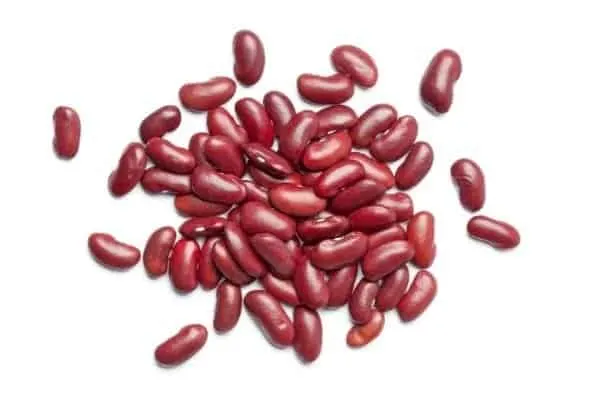
1400 mg of potassium per 100 gm
Kidney beans are surprisingly pretty rich in potassium.
One can of kidney beans contains 600% more potassium than one banana.
Healthy kidney beans are a great food for anyone trying to lose weight.
They can be eaten as a side dish or in salads and soups. The fiber, protein, and low-fat content make them an ideal option for those on a diet.
14. SOYBEANS
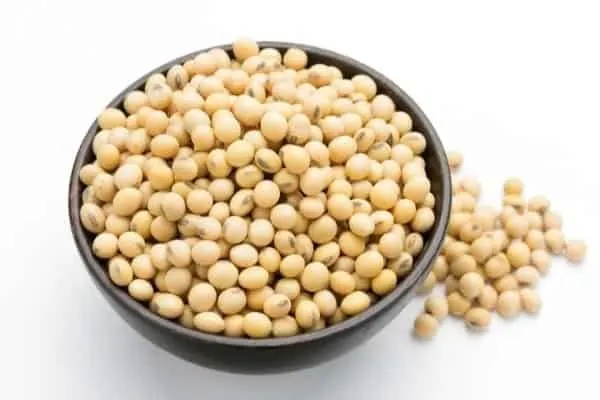
620 mg of potassium per 100 gm
Soybeans are a type of legume that is native to East Asia. They are versatile and nutrient-rich food that has been consumed for centuries.
Soybeans are high in protein, fiber, and micronutrients, and they offer a variety of health benefits.
Weight loss, lower blood pressure, cholesterol levels, and improved heart health; are just some of the soybean’s health benefits.
They can be enjoyed in a variety of ways, from simply boiled soybeans to soybean-based products like tofu and tempeh. With so many benefits to enjoy, it’s no wonder that soybeans are such a popular food choice!
15. LENTILS
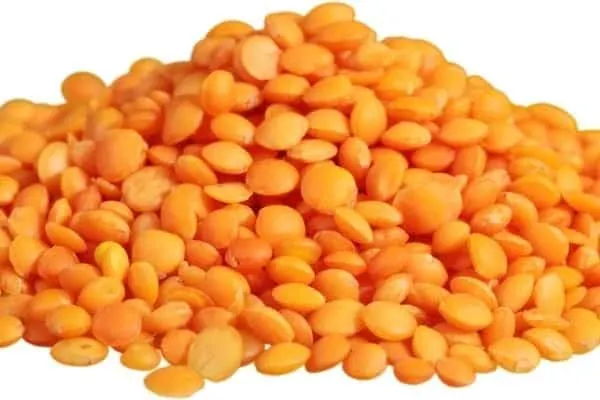
369 mg of potassium per 100 gm
If you’re looking for ways to add more protein and fiber to your diet, look no further than lentils.
These tiny legumes are packed with nutrients, and they’re relatively easy to prepare.
-Lentils are high in protein and fiber, which can help you feel full longer. This makes them a great choice if you’re trying to lose weight or maintain a healthy weight.
-Lentils are also an excellent source of folate, potassium, and magnesium.
-Lentils contain polyphenols that are great for various health-promoting properties.
ADEQUATE POTASSIUM INTAKE
A diet rich in potassium can help to lower blood pressure by reducing the effects of sodium on the body.
Adequate Potassium intake can also help to reduce the risk of stroke by helping to keep blood vessels healthy and functioning properly.
Alternatively, too much potassium in the diet can lead to problems such as kidney stones and gastrointestinal discomfort.
It is important to talk to a doctor or registered dietitian before making any changes to your diet. They can help you determine the right amount of potassium for you based on your individual needs.
Potassium supplements
Potassium supplements or dietary supplements are available in various forms, including tablets, capsules, liquids, and powders.
It is important to talk to a doctor before taking any type of supplement, as they can interact with certain medications and cause other side effects.
References: hsphharvard.com
My Take on Potassium-Rich Foods
You need to eat a lot of potassium-rich foods and be sure not to have too low levels in order for your body’s systems, like blood pressure or heart health to work properly.
A good way I’ve found that helps me maintain my K intake is by adding some fresh fruit to my meals here at home!
Our body needs essential nutrients that only be availed from nutritious foods and healthy eating.
So if you are wondering how to raise the potassium level of your body, then these foods can easily help you do so.
Make kidney beans and other legumes a part of your diet.
Add any of the fruits and leafy green vegetables to your regular diet and you are ready to go to be in the best of your health.
Avoid processed foods as much as possible.
Related Healthy Foods:
- 21 Healthy Sweet Snacks
- 16 Overnight-Oats Recipes
- 15 Healthy Breakfast Ideas
- 9 Green Smoothies for a Breakfast
- Top 10 Calcium-Rich Foods
- 30 Super-Charged Foods for WeightLoss
Potassium-Rich Foods Listed
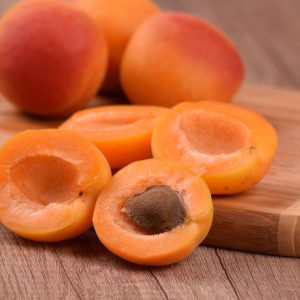
15 High Potassium Rich Foods (All-Vegan)
Ingredients
- Raisins and Prunes
- Dates
- Bananas
- Apricots
- Oranges
- Grapefruit
- Spinach
- Potato
- Sweet Potato
- Mushroom
- Broccoli
- Zucchini
- Kidney Beans
- Soybeans
- Lentils
Instructions
- Choose any 2-3 top-potassium foods for a week.
- Alternate your favorite potassium-rich foods every week to get the nutrition of all.
- Have a healthy rich life.
Notes

